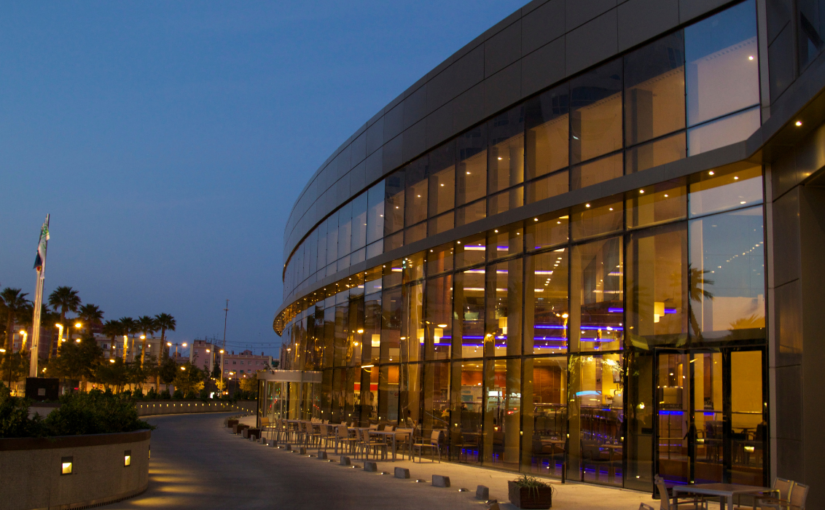back
Understanding the basics of hotel and hospitality property financing
02-2023

If you work in the hotel or hospitality sector, you are aware of the difficulty that financing can present. Understanding the fundamentals of financing for hotels and other hospitality properties is essential whether you’re trying to buy a new property or refinance an existing one. In this blog post, we’ll go over the fundamentals of financing for hotels and other hospitality properties, including the various loan types available, the criteria that lenders use to assess loan applications, and advice on how to get financing.
Types of Hotel and Hospitality Property Loans
There are a few different loan types you can take into consideration when it comes to financing hotels and other hospitality-related properties. Here are a few of the most widespread:
- Commercial Mortgages: The term “commercial mortgage” refers to a type of loan used to buy or refinance commercial real estate, such as hotels and other lodging facilities. A 20% to 30% down payment is typically required for these loans, which typically have terms of 5 to 20 years.
- SBA Loans: Lending from the Small Business Administration (SBA) is a popular option for financing lodging facilities. These federally guaranteed loans have lower down payments and longer repayment terms than conventional commercial mortgages.
- Bridge Loans: In order to bridge the time between the purchase of a new property and the sale of an existing one, bridge loans are short-term loans. These loans are ideal for short-term financing needs because they typically have higher interest rates than other types of loans.
- Mezzanine Financing: In order to finance a hotel or other hospitality property, a borrower may use mezzanine financing to bridge the gap between their equity and required debt. If you need to raise money quickly, this type of financing may be a good option even though it is typically more expensive than other types of financing.
Factors Lenders Consider When Evaluating Loan Applications
Lenders take a number of factors into account when evaluating loan applications for hotels and other hospitality properties. Some of the most crucial are listed below:
- Property Cash Flow: The property must produce enough cash flow to cover the loan payments for the lender to approve a loan. To determine whether the property can support the loan, they will consider both the property’s past financial performance and its expected future performance.
- Debt Service Coverage Ratio (DSCR): The DSCR is a ratio that assesses a property’s capacity to produce sufficient cash flow to pay off its debts. In general, lenders seek a DSCR of at least 1.25 to 1.5.
- Property Condition: Lenders will want to confirm that the home has been well-maintained and is in good condition. To evaluate the state of the property, they might demand an inspection.
- Location: Another crucial element is the property’s location. The location of the property in a desirable area with high demand for lodging and hospitality properties is something that lenders will be looking for.
Tips for Securing Hotel and Hospitality Property Financing
Here are some suggestions to help you obtain financing for your property now that you are familiar with the fundamentals of hotel and hospitality property financing:
- Prepare a Detailed Loan Application: It’s critical to create a thorough loan application that contains all the necessary financial and operational details in order to improve your chances of receiving funding. Include a thorough business plan, projections, and historical financial statements.
- Work with an Experienced Lender: In order to obtain financing for your hotel or hospitality property, selecting the right lender is essential. Choose a lender with experience in the field who is aware of the special difficulties and chances that the hotel and hospitality industry presents.
- Improve Your Credit Score: When assessing loan applications, lenders take your credit score into account. Before requesting financing, work to raise your credit score if it is low.
- Build Strong Relationships with Lenders: Establishing trusting bonds with lenders can help you get financing for your hotel or hospitality property. Gather contacts and improve your chances of obtaining financing by networking with lenders, participating in industry events, and joining professional associations.
- Consider Alternative Financing Options: For hotels and other hospitality properties, there are alternative financing options besides conventional loans. Your property might be financed, for instance, by crowdfunding websites, private equity firms, and REITs.
It can be difficult to obtain financing for hotels and other hospitality properties, but by familiarizing yourself with the fundamentals of real estate lending and collaborating with knowledgeable lenders, you can improve your chances of success. To make the process go as smoothly as possible, keep in mind to prepare a thorough loan application, raise your credit score, and develop strong relationships with lenders.
F2H Capital Group is a debt advisory firm specializing in negotiating the best terms for your commercial real estate projects. The company offers a range of financial products and services, including fixed loans, bridge loans, and construction loans across all asset types. Please contact us for any of your financing needs.

